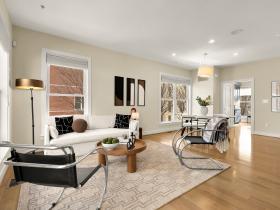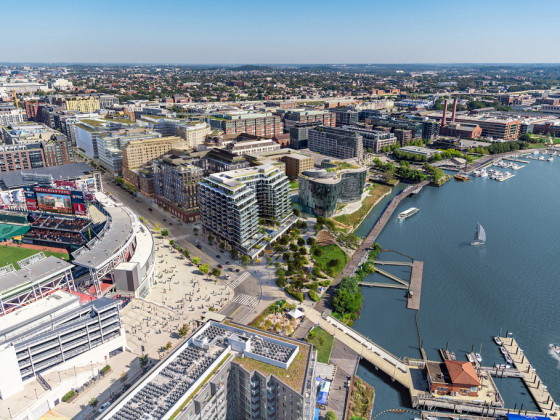What's Hot: Did January Mark The Bottom For The DC-Area Housing Market? | The Roller Coaster Development Scene In Tenleytown and AU Park
 Potomac: A Suburb on Steroids
Potomac: A Suburb on Steroids
✉️ Want to forward this article? Click here.
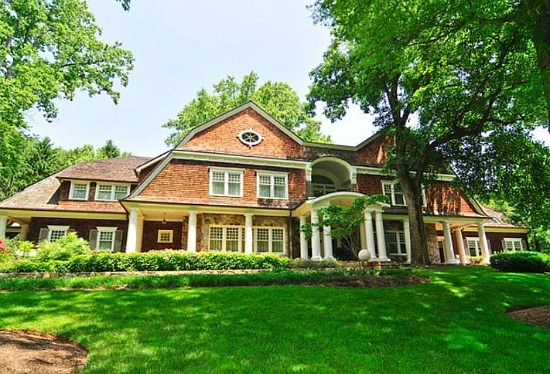
A home on the market in Potomac for almost $8 million
Potomac, Md. is about as different a place as there can be from central DC. While close-in DC neighborhoods are favored by residents because of their dynamism and walkability, Potomac is a secluded community where a car is an absolute requirement in order to get around. Instead of row houses tightly packed into small blocks, the Montgomery County suburb is dotted with massive houses that sit on vast plots of land. And the homes are not the only thing that are large: Potomac residents are some of the wealthiest in the region.
Wealth Lying Just Outside the Beltway
Potomac is just north of Bethesda; the area lies northwest of a line formed by the Beltway (I-395) and I-270, and just inside a curve of the Potomac River.
Two years ago, CNN ranked the community as the fourth most affluent in the U.S., and Forbes magazine has touted it as one of the ten best-educated areas in the country. While many rankings should be taken with a grain of salt, Potomac’s inclusion on both these lists is representative of its demographics. Not everyone who lives there is rich or has a doctorate, but it is home to Redskins owner Daniel Snyder and Wizards and Capitals owner Ted Leonsis, among other wealthy DC luminaries.
Jaw-Dropping Houses
In contrast to inner-ring suburbs like Bethesda or Silver Spring, where the housing stock has grown over many decades and therefore includes a range of sizes and prices, Potomac’s homes tend to be newer and much larger.
That’s not to say they’re all huge. The median sale price for homes is around $750,000, and buyers can find spacious townhouses and condos for roughly $550,000, and there are 1960s and ‘70s-era split level ranch homes that go for around $650,000.
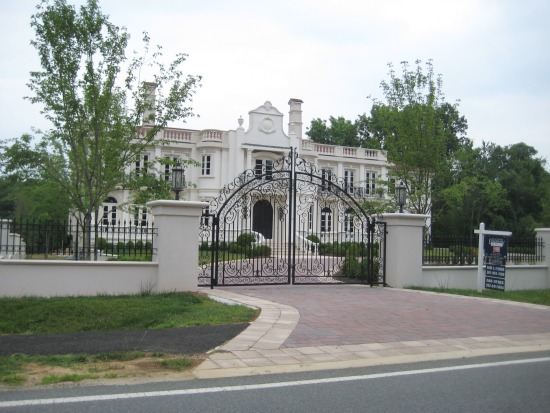
One of Potomac’s castle-like homes.
Still, Potomac’s reputation for having enormous homes, with accompanying price tags that can go north of $8 million, is not exaggerated. A drive through some of the subdivisions off of River Road, the main artery coming from the District, can be jaw-dropping. Many of the houses resemble castles in both architectural design and size, and all sit on large, well-groomed plots of land, off of quiet streets that lack sidewalks.
Residents are attracted not only to the area’s housing stock, but also its serenity. Callisto Madavo, a retired World Bank economist and visiting professor at Georgetown University, moved to the area from DC because he wanted to find a calm area to raise his kids—somewhere with good schools and few temptations.
“I wanted a place where they’d be occupied in a constructive, productive way,” Madavo said. “We’ve been very happy with Potomac.”
Potomac’s family orientation is one of the key things residents tout about the area. The community has some of the best public schools in the region, and it’s also very close to many natural parks and preserves, including Great Falls park along the Potomac River, Scotts Run Nature Preserve, and Cabin John Park.
This Is What Car Culture Looks Like
Potomac’s quiet, cozy atmosphere comes with what many would consider a downside: services and homes are spread out, which means getting around requires driving. While the area is served by a few WMATA and Montgomery County bus lines, buses run infrequently and stops are often far from each other. The closest Metro is the Rockville station on the Red Line, but that’s more than six miles to the northeast.
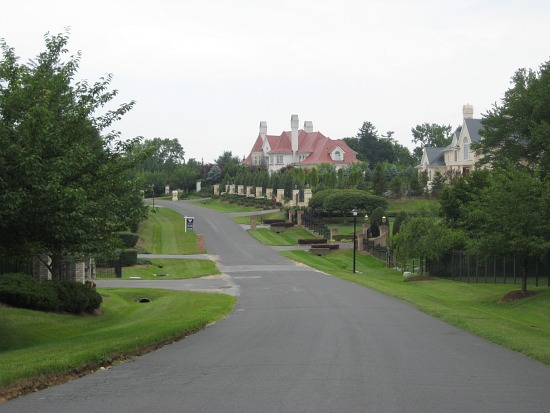
A quiet street in Potomac
Residents have mixed emotions about the car-centered lifestyle. Dr. Smith, a retired teacher, said that Falls Road, one of Potomac’s main streets, is rarely jammed with traffic, and that driving into DC usually takes about 30 minutes along the Clara Barton Parkway, and involves only two traffic lights. On the other hand, Kyle Samperton, a photographer who has lived in Potomac for 20 years, feels traffic has gotten worse over time, noting that sometimes it can take an hour to get into central DC.
But while many residents work in downtown DC, it’s not the center of their universe. On a recent weekday afternoon, Potomac Village, a cluster of shopping centers fronted by a vast parking lot that forms the heart of the community, was bustling with shoppers and socializers. The only major commercial area within the neighborhood’s boundaries, its services can meet most residents’ everyday needs, as there are two grocery stores (including a new Giant), two drugstores, a couple banks, a hardware store, a dry cleaners, a fish store, an eyeglasses shop, and an ever-busy Starbucks.
“I’ll remain here because of the services provided,” said Samperton, trying to explain the community’s appeal. “The people at the bank know my face and say hi; when I have to fill a prescription but forget something, the Rite Aid people know me, and the Starbucks guys know when I’m in a bad mood.”
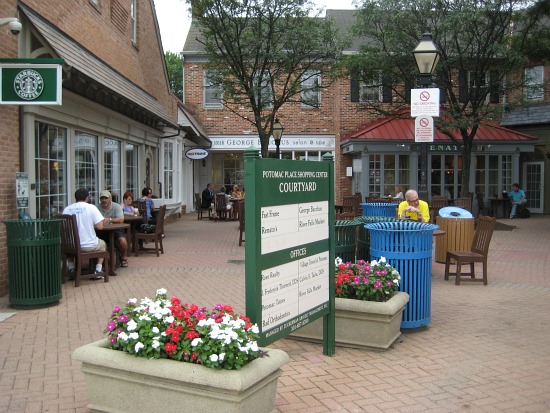
Potomac Village
Not For Foodies
Potomac’s dining options are limited. There’s Renato, an Italian restaurant that has lots of fans; Hunter’s Inn, which serves fairly standard American cuisine that’s gotten mixed reviews; Normandie Farm, an upscale French restaurant; and Bezu, a slightly hipper French place. Aside from those, there are several fast food/take out options.
The few dining choices is a drawback, but it’s not the end of the world, said Sherry Marshall, who added that she still prefers Potomac to busy Bethesda. “I’d rather come here,” she said. “It’s much quieter and friendlier, and easier to get in and out.”
The Bottom Line
Potomac is a suburb on steroids: the homes are massive, the lawns are wide and green, and the reliance on (usually fancy) cars for getting around is almost total. While these elements and its exclusivity probably don’t make it appealing for those in Generation Y, the traits suit its older, wealthier demographic quite well.
Amanda Abrams is a Washington, DC-based journalist who has written feature stories for The Washington Post, Christian Science Monitor, and Washington City Paper.
- Zip Code: 20854
- Schools: Potomac Elementary School, Seven Locks Elementary School, Herbert Hoover Middle School, Cabin John Middle School, Winston Churchill High School
- Potomac real estate data from Redfin
This article originally published at https://dc.urbanturf.com/articles/blog/potomac_a_suburb_on_steroids/3768.
Most Popular... This Week • Last 30 Days • Ever

As mortgage rates have more than doubled from their historic lows over the last coupl... read »

The small handful of projects in the pipeline are either moving full steam ahead, get... read »

Lincoln-Westmoreland Housing is moving forward with plans to replace an aging Shaw af... read »

The longtime political strategist and pollster who has advised everyone from Presiden... read »

A report out today finds early signs that the spring could be a busy market.... read »
DC Real Estate Guides
Short guides to navigating the DC-area real estate market
We've collected all our helpful guides for buying, selling and renting in and around Washington, DC in one place. Start browsing below!
First-Timer Primers
Intro guides for first-time home buyers
Unique Spaces
Awesome and unusual real estate from across the DC Metro





